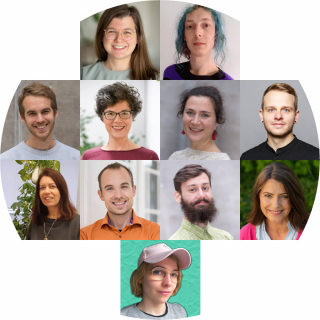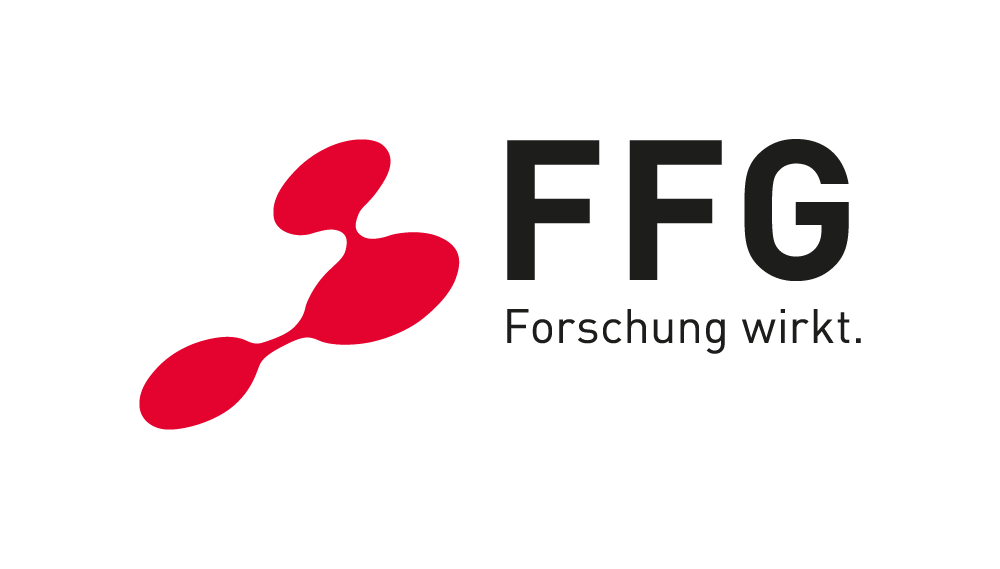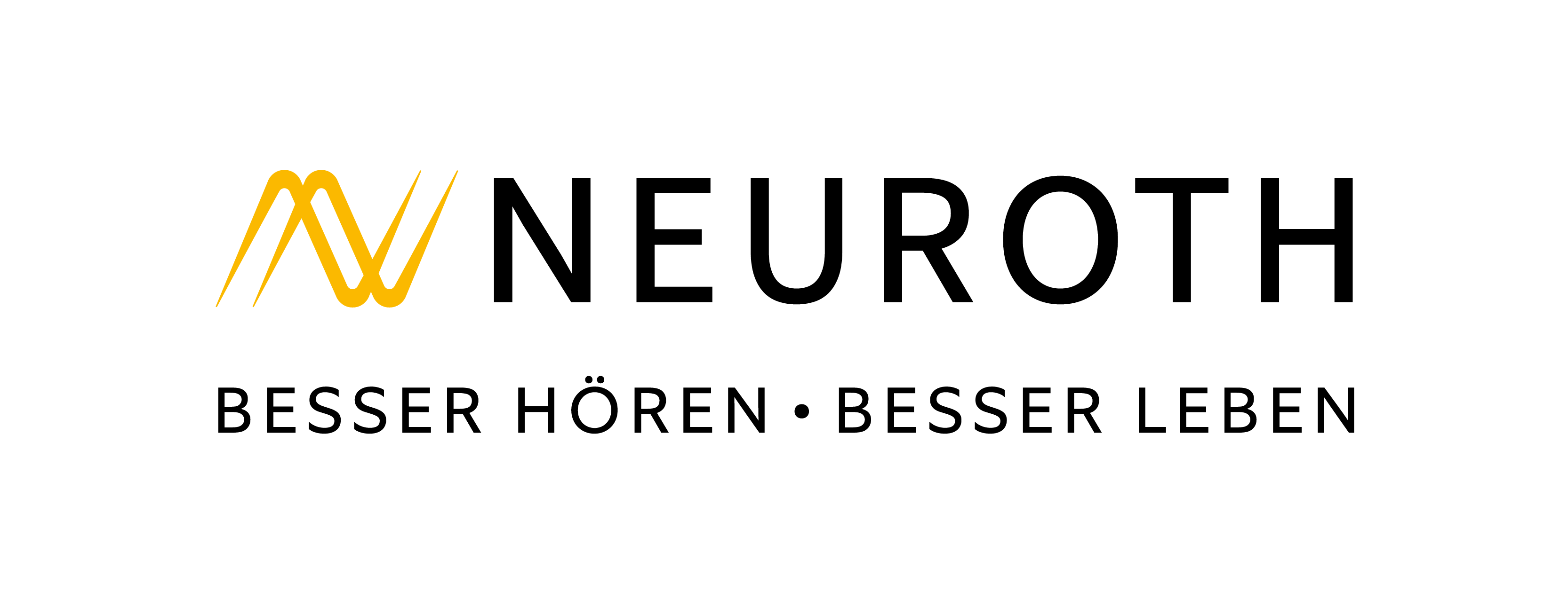tune_in - Akustik und Elektrotechnik diversitätssensibel und geschlechtergerecht vermitteln
Kursstart: 30. Mai 2022
tune_in - Akustik und Elektrotechnik diversitätssensibel und geschlechtergerecht vermitteln
tune_in-Team
Wissenschaftliche Einordnung:
Kursstart: 30. Mai 2022
tune_in - Akustik und Elektrotechnik diversitätssensibel und geschlechtergerecht vermitteln
tune_in-Team
-
Umfang: 4 Lektionen
-
Aufwand: 2 Stunden/Woche
-
Teilnehmende aktuell: 143
-
Lizenz: CC BY 4.0
-
Kursstart: 30. Mai 2022
-
Kursende: -
-
Status aktuell: Laufender Kurs
-
Verfügbare Sprachen:
Details zum Kurs
Inhaltsübersicht
Allgemeine Informationen zum Kurs
Im Projekt „tune_in“ wurden Workshops zu den Themenbereichen Akustik und Elektrotechnik für Kinder und Jugendliche mit unterschiedlichen ethnischen Hintergründen aus Volksschulen und der Sekundarstufe entwickelt und durchgeführt. Dieses Talente regional Projekt wird vom Bundesministerium für Klimaschutz, Umwelt, Energie, Mobilität, Innovation und Technologie gefördert. Das Projekt wird gemeinsam von nowa und der TU Graz in Kooperation mit Unternehmen und Schulen durchgeführt.
Die entwickelten Tools, Methoden und Unterrichtsmaterialien werden in diesem MOOC in Form einer diversitätssensiblen und geschlechtergerechten Toolbox für Pädagog*innen zur Verfügung gestellt.
Denn nach wir vor manifestieren sich Genderstereotype in der Ausbildungs- und Berufswahl von Jugendlichen. Kinder lernen sehr früh, welches Verhalten, welche Fähigkeiten und Fertigkeiten welchem Geschlecht zugeschrieben werden und wer wofür als weniger oder besser geeignet gesehen wird.
Das Projekt tune_in hat sich zum Ziel gesetzt genau hier anzusetzen und durch altersgerechte Erklärungen und Hands-On Experimente allen Schüler*innen einen freudvollen Zugang in die Welt der Technik zu eröffnen. Interesse und Begabung stehen im Vordergrund und werden durch das eigene Tun der Schüler*innen gestärkt. So können Zuschreibungen hinsichtlich der Geschlechter aufgebrochen, Rollenstereotype in Frage gestellt und darüber hinaus auch unterschiedliche Zugänge als Ressource nutzbar gemacht werden.
Kursinhalt
Der MOOC richtet sich an Pädagog*innen, die sich gemeinsam mit ihren Schüler*innen auf eine Entdeckungsreise durch die Welt der Sprache, Akustik und der Elektrotechnik begeben und verschiedene auch noch weniger bekannte Berufsbilder kennen lernen möchten. Ganz konkret finden sich in diesem MOOC unterschiedliche Workshops und Tools zu den Themenfeldern Sprache (Bildung und Wahrnehmung von Sprache etc.), Akustik (Entstehung und Wahrnehmung von Schall, Lautsprecherbau etc.) und Berufsbildarbeit (Role Models aus den Unternehmen und dem Projektteam, die ein breites Spektrum an Berufswegen abdecken, geben Impulse für mögliche Ausbildungs- bzw. Karrierewege etc.).
Der MOOC umfasst insgesamt 4 Lektionen. In jeder Lektion finden Sie Vorschläge, Tools, Methoden, konkrete Anleitungen und Hintergrundinformationen für die Gestaltung und Umsetzung von Workshops oder von kleinen Projekten im Rahmen des Unterrichts. In den Lektionen 1-3 finden sich auch spezielle Videos, die Sie bei der Planung, Vorbereitung und Durchführung der Workshops unterstützen.
Quizfragen am Ende jeder Lektion sollen Ihnen dabei helfen, die Inhalte der Lektionen noch einmal zu wiederholen und kurz zu reflektieren.
Lernziele
Aneignung von Basiskenntnissen über diversitätssensible und geschlechtergerechte Wissensvermittlung anhand der entwickelten Workshops, der Berufsvideos, der Zusatzmaterialien und der bereitgestellten Informationen
Vorkenntnisse
Keine
Kursablauf
Das sind die Themen:
Lektion 1: Anleitung und Materialien für Pädagog*innen zur Gestaltung und Durchführung eines in tune_in entwickelten Sprachworkshops. Im Rahmen dieses Workshops beschäftigen sich die Schüler*innen unter anderem mit den Phänomenen des Sprechens, des Hörens und des Verstehens. Auch das Sprechen in unterschiedlichen Sprachen wird thematisiert.
Lektion 2: Anleitung und Materialien für Pädagog*innen zur Gestaltung und Durchführung eines in tune_in entwickelten Akustikworkshops. Im Rahmen dieses Workshops kann auch ein Lautsprecher gebaut werden.
Lektion 3: Anleitung und Materialien für Pädagog*innen zur Gestaltung einer diversitätssensiblen und geschlechtergerechten Berufsbildarbeit rund um die Themen Akustik und Elektrotechnik. Im Rahmen dieser Lektion erzählen Role Models aus den Berufsbereichen der Akustik und Elektrotechnik in einem Video von ihrem Arbeitsalltag, ihren Aufgabengebieten, ihrer Motivation und von den Produkten, die sie herstellen.
Lektion 4: Hintergrundinformationen und theoretische Grundlagen für Pädagog*innen zur diversitätssensiblen und geschlechtergerechten Unterrichtsgestaltung.
Zertifikat
Für die aktive Teilnahme am Kurs erfolgt bei Abschluss die Ausstellung eines automatisierten Zertifikats, welches Ihren Benutzernamen, den Kursnamen und die abgeschlossenen Lektionen beinhalten. Es wird darauf hingewiesen, dass es sich nur um eine Bestätigung handelt, die aussagt, dass die Benutzerin oder der Benutzer zumindest 75% der gestellten Selbstüberprüfungsfragen richtig beantwortet hat.
Lizenz
Dieses Werk ist lizenziert unter einer Creative Commons - 4.0 International (CC BY 4.0)
Kursleitung

tune_in-Team
Ass.Prof. Mag.rer.nat. Dr. Barbara Schuppler
Barbara Schuppler ist Assistenzprofessorin am Institut für Signalverarbeitung und Sprachkommunikation der Technischen Universität Graz. Zu ihren Forschungsinteressen gehören vor allem die Entwicklung von technischen Methoden zur Untersuchung von Sprachmelodie und Aussprachevariation in spontanen Gesprächen. Dazu wird das akustische Signal der aufgenommenen Gespräche auf phonetische Details hin analysiert und die gewonnenen linguistischen Erkenntnisse in Modelle für die automatischen Spracherkennung integriert.
Nach ihrem Doktorat im Bereich der automatischen Spracherkennung und Forschungsaufenthalten in den Niederlanden, Norwegen, Frankreich und Spanien, kam sie 2012 an das Institut für Signalverarbeitung und Sprachkommunikation. Dort hat sie bisher drei FWF Projekte zum Thema Aussprachevariation in spontanen Gesprächen geleitet. 2019 war sie Mitorganisatorin der Interspeech Konferenz, unter anderem des Workshops ‘Speech and Language Technology in Education’ und der Lehrerfortbildung ‘Siri, Alexa & Co. Zu Gast auf der Interspeech Konferenz’.
Dipl.-Ing. Eric Kurz
Eric Kurz ist Universitätsassistent am Institut für Signalverarbeitung und Sprachkommunikation der Technischen Universität Graz. Zu seinen Forschungsinteressen gehören die Raumakustik, im speziellen die Schallfeldanalyse und die Modellierung poröser Absorber in Raumkanten und -ecken, die Audio- und Studiotechnik sowie räumliche Audiosignalverarbeitung.
Nach seinem Abschluss des interdisziplinären Studiengangs „Elektrotechnik-Toningenieur“ an der Technischen Universität Graz und der Kunstuniversität Graz 2018 arbeitete er zunächst als Projektassistent am Institut für Hörtechnik und Akustik der RWTH Aachen und begann 2019 ein Doktoratsstudium im Bereich der Akustik und Audiotechnik am Institut für Signalverarbeitung und Sprachkommunikation. Seit 2021 betreut er hauptverantwortlich das Tonstudio der Technischen Universität Graz.
Heidi Gaube, MA, MBA
Heidi Gaube ist bei nowa, Training Beratung Projektmanagement zuständig für das strategische Projektmanagement und für die Entwicklung, Planung, Koordination und Umsetzung von Projekten auf regionaler, nationaler und internationaler Ebene. Sie arbeitet seit mehr als 25 Jahren als Expertin in den Bereichen (Erwachsenen)-Bildung, Gender Mainstreaming, Personalentwicklung, Begleitung, Unterstützung und Implementierung von Gleichstellungsprozessen in Unternehmen und Organisationen und lebensbegleitendes Lernen. Nach einem Studium der Erziehungswissenschaften absolvierte sie ein Masterstudium in systemischem Führen und Leiten in Bildungseinrichtungen und HRM.
Mag.a Karoline Droschl-Pieringer
Karoline Droschl-Pieringer ist Mitarbeiterin im Büro für Gleichstellung und Frauenförderung der TU Graz und verantwortlich für Schulkooperationen im Bereich der Kinder- und Jugendaktivitäten. Sie ist neben ihrer Anstellung als Obfrau im „Grrrls Kulturverein“ tätig, der mittels Konzerten, Jamsessions, Radiosendungen, Workshops, Musikreleases etc. Frauen* im Musik- und Kulturbereich fördert.
Florian Ungerböck, MSc
Florian Ungerböck ist Angestellter im Büro für Gleichstellung und Frauenförderung der TU Graz und verantwortlich für Frauen*förderungsprojekten im Kinder- und Jugendbereich. Diese umfassen unter anderem die sogenannten CoMaed-Kurse, IT-Sommerkurswochen für Mädchen ab 10 Jahren, sowie Ferialjobs und Studienorientierungsveranstaltungen für Schüler*innen ab 15 Jahren.
Partner:innen
- Technische Universität Graz
- nowa
Dieses Projekt wurde gefördert von der Österreichischen Forschungsförderungsgesellschaft (FFG).
-

Technische Universität Graz
-

nowa Erwachsenenbildung
-

Österreichische Forschungsförderungsgesellschaft mbH (FFG)
-

Bundesministerium für Klimaschutz, Umwelt, Energie, Mobilität, Innovation und Technologie
-

Neuroth
-

Poet Audio
-

Dialog Semiconductor
